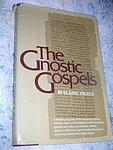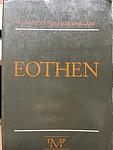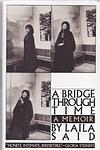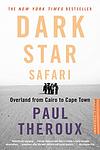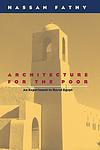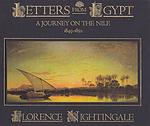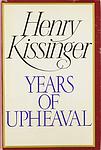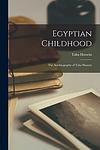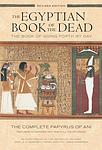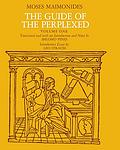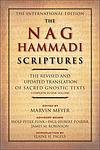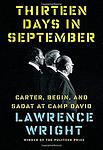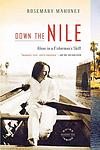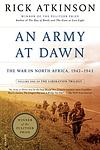The Greatest "Nonfiction, Egypt" Books of All Time
Click to learn how this list is calculated.
This list represents a comprehensive and trusted collection of the greatest books. Developed through a specialized algorithm, it brings together 300 'best of' book lists to form a definitive guide to the world's most acclaimed books. For those interested in how these books are chosen, additional details can be found on the rankings page.
Genres
Countries
Date Range
Reading Statistics
Click the button below to see how many of these books you've read!
Download
If you're interested in downloading this list as a CSV file for use in a spreadsheet application, you can easily do so by clicking the button below. Please note that to ensure a manageable file size and faster download, the CSV will include details for only the first 500 books.
Download-
1. The Histories of Herodotus by Herodotus
"The Histories of Herodotus" is an ancient text that provides a comprehensive account of the Greco-Persian Wars. It is often considered the first work of history in Western literature. The author, often referred to as the 'Father of History', provides a narrative that not only discusses the conflicts between the Greeks and Persians, but also delves into the customs, geography, and history of each civilization. This detailed and pioneering work has greatly contributed to our understanding of the ancient world.
-
2. The Mediterranean And The Mediterranean World In The Age Of Philip Ii by Fernand Braudel
This seminal work offers a comprehensive analysis of the Mediterranean region during the 16th century, focusing on the complex social, political, and economic landscapes that defined the era of Philip II of Spain. The book transcends traditional historiography by emphasizing the geographical and ecological factors that shaped human activity, from the ebb and flow of commerce and the patterns of agrarian life to the rise and fall of empires. Through a meticulous study of the Mediterranean world, the narrative weaves together the intricate tapestry of cultures, religions, and power dynamics that characterized the period, providing a vivid portrayal of the enduring influence of the environment on the course of human history.
-
3. The Gnostic Gospels by Elaine Pagels
This book explores the findings of the Nag Hammadi library, a collection of gnostic texts discovered in 1945. The author examines these texts, which were excluded from the canonical Bible, and discusses their implications for our understanding of early Christianity. The book delves into the diversity of beliefs in early Christian communities, the role of women in these groups, and the political and theological reasons behind the formation of the orthodox Christian canon.
-
4. Eothen by Alexander William Kinglake
"Eothen" is a vivid travelogue that chronicles the author's journey through the Middle East in the 1830s, capturing the essence of the region with a blend of personal adventure, cultural commentary, and historical insight. The narrative takes the reader on an evocative trip across countries like Turkey, Cyprus, Lebanon, Syria, Palestine, Egypt, and Jordan, offering a glimpse into the customs, landscapes, and daily life of the time. The author's keen observations and descriptive prowess bring to life the exotic locales, the encounters with diverse peoples, and the challenges of travel in an era before modern conveniences, all while reflecting the Victorian fascination with the Orient and its perceived mysteries.
-
5. Antériorité Des Civilisations Nègres by Cheikh Anta Diop
"Antériorité Des Civilisations Nègres" by Cheikh Anta Diop explores the history and achievements of African civilizations, challenging the prevailing Eurocentric narrative that downplays the contributions of African cultures. Diop presents a compelling argument for the existence of advanced African civilizations and their impact on world history, drawing on linguistic, archaeological, and anthropological evidence. Through meticulous research, he highlights the intellectual, scientific, and cultural achievements of African societies, ultimately reclaiming their rightful place in the annals of human civilization.
-
6. A Bridge Through Time by Laila Abou-Saif
"A Bridge Through Time" is a poignant memoir that chronicles the author's life journey, weaving together the rich tapestry of her Egyptian heritage with her experiences in the Western world. The narrative delves into the complexities of identity, culture, and the sense of belonging as the author navigates the challenges of assimilation and the preservation of her roots. Through a series of reflective anecdotes and personal insights, the book offers a unique perspective on the universal quest for self-discovery and the reconciliation of disparate worlds, ultimately serving as a metaphorical bridge connecting the past with the present.
-
7. Dark Star Safari by Paul Theroux
In this travel memoir, the author recounts an overland journey across Africa, starting from Cairo and ending in Cape Town. Along the way, he traverses a continent rich with diverse cultures, landscapes, and histories, while also confronting the stark realities of poverty, political turmoil, and the complex legacies of colonialism. His encounters with aid workers, missionaries, and locals provide a nuanced perspective on the challenges and beauty of Africa, as well as a critical look at the effects of foreign aid and development. The narrative is a blend of adventure, reflection, and social commentary, revealing the author's deep fascination with the continent and its people.
-
8. The Samaritan Treasure by Marianne Luban
"The Samaritan Treasure" is an intriguing historical novel that delves into the ancient world, weaving a tale of mystery and adventure around the biblical account of the Good Samaritan. The narrative follows an archaeologist who stumbles upon a clue to the legendary treasure of the Samaritans, leading to a thrilling quest that spans continents and centuries. As the protagonist deciphers ancient texts and navigates dangerous liaisons, the story explores themes of faith, cultural heritage, and the enduring allure of hidden riches. The novel is a blend of meticulous historical research and imaginative storytelling, offering readers a captivating journey through time and the human spirit's quest for discovery.
-
9. Architecture For The Poor by Hassan Fathy
"Architecture for the Poor" is a book that describes an innovative approach to building in impoverished communities, focusing on the use of sustainable, cost-effective materials and methods that are culturally and environmentally appropriate. The author, an Egyptian architect, advocates for the use of traditional building techniques, particularly mud brick, and emphasizes the importance of involving the community in the building process. This approach not only helps to reduce costs but also empowers the residents, fostering a sense of pride and ownership. The book is both a critique of modern urban planning and a call to rethink architectural practices to better serve the needs of the poorest members of society.
-
10. A History of the Crusades by Stephen Runciman
This book offers a comprehensive and detailed examination of the Crusades, a series of religious wars fought in the medieval period. The author delves deep into the political, economic, and social circumstances that led to the wars, the key figures involved, and the long-lasting effects on both the Christian and Muslim worlds. The narrative is both scholarly and engaging, providing a balanced perspective on one of history's most complex and controversial periods.
-
11. Memoirs From The Women’s Prison by Nawal El Saadawi
The book is a powerful autobiographical account of the author's imprisonment in 1981 by the Egyptian government for alleged crimes against the state, primarily due to her outspoken views on women's rights and her criticisms of political repression. Within the confines of the women's prison, she encounters a diverse group of inmates, from political dissidents to murderers, each with their own story and struggles. The narrative delves into the harsh realities of life behind bars and the resilience of women who support one another in the face of adversity, revealing the oppressive mechanisms of the state and the enduring spirit of resistance among women.
-
12. Letters From Egypt by Florence Nightingale
"Letters from Egypt" is a compilation of correspondences written during a formative journey, offering a glimpse into the experiences and observations of a young woman who would later become renowned for her contributions to nursing and public health. The letters, penned with keen insight and a reflective tone, document her travels through Egypt in the mid-19th century, capturing the cultural, historical, and social nuances of the time. Through her vivid descriptions and personal reflections, the author provides a rich, descriptive account of Egyptian life, landscapes, and her own intellectual and spiritual growth, all of which predate her legendary work during the Crimean War and her subsequent pioneering efforts in health care reform.
-
13. Years Of Upheaval by Henry A. Kissinger
"Years of Upheaval" is a detailed and introspective account of the author's tenure as the U.S. Secretary of State during the tumultuous years of the early 1970s. The book delves into the complexities of international diplomacy and political maneuvering during a period marked by the winding down of the Vietnam War, the historic 1973 Yom Kippur War in the Middle East, and the consequential peace negotiations that followed. It also explores the intricate dynamics of U.S.-Soviet relations and the strategic arms limitation talks, providing a deep insight into the challenges and intricacies of Cold War diplomacy, all set against the backdrop of domestic political upheaval and the Watergate scandal.
-
14. An Egyptian Childhood by Taha Husayn
The book is a poignant autobiographical account that delves into the early years of a visually-impaired boy growing up in a small Egyptian village at the turn of the 20th century. It explores the challenges and societal expectations he faces, as well as the cultural and educational milieu of Egypt during this period. The narrative is a blend of personal growth, the pursuit of knowledge, and the struggle against traditional constraints, providing a window into the author's formative experiences that shaped his journey towards becoming one of the most influential intellectuals of his time.
-
15. Egyptian Book Of The Dead by Unknown
The text in question is an ancient Egyptian funerary text consisting of spells, prayers, and incantations intended to guide the deceased through the afterlife. It contains detailed instructions for the soul's journey past various obstacles, with the ultimate goal of reaching the afterlife and achieving eternal life. The spells are designed to protect the soul from evil forces, ensure the continuation of life after death, and maintain harmony with the gods. This collection of texts highlights the Egyptians' beliefs about the importance of the afterlife and the complex rituals associated with death and burial practices.
-
16. Cleopatra: A Life by Stacy Schiff
"Cleopatra: A Life" by Stacy Schiff is a detailed biography of one of the most famous and enigmatic figures in history, Cleopatra VII of Egypt. The book explores her life from childhood to her reign as queen, her relationships with Julius Caesar and Mark Antony, and her eventual downfall. Schiff uses primary sources and historical records to paint a vivid picture of Cleopatra's world and dispel many of the myths surrounding her life. The book also delves into the political and cultural context of ancient Egypt and Rome, providing a fascinating glimpse into a bygone era.
-
17. Almagest by Ptolemy
"Almagest" is a seminal work on astronomy and mathematics, written in the 2nd century. The book presents a comprehensive system of the world, including a detailed account of the fixed stars and the motions of the planets. It also includes a mathematical toolkit that was essential for understanding the heavens in its time, such as a catalogue of stars, the lengths of the tropical year and the lunar month, and the theory of the Sun, Moon, and planets. The book's geocentric model, where the Earth is at the center of the universe, was widely accepted until the Copernican Revolution.
-
18. Malcolm X: A Life of Reinvention by Manning Marable
This biography provides an in-depth exploration of Malcolm X's life, from his early days of crime and imprisonment to his transformation into one of the most influential African-American leaders. It delves into his complex relationships, his evolving political beliefs, and his controversial views on race and religion. The book also examines his assassination, shedding new light on the circumstances around his death and the conspiracy theories that followed.
-
19. Allegorical Expositions of the Holy Laws by Philo of Alexandria
This book is a comprehensive examination of the Jewish laws as interpreted through the lens of Hellenistic philosophy. The author uses allegory to explain the significance and deeper meanings behind these laws, drawing on both Jewish and Greek philosophical traditions. The text serves as an exploration of morality, ethics, and religious observance, offering readers a unique perspective on Jewish law and its intersection with broader philosophical concepts.
-
20. The Guide for the Perplexed by Moses Maimonides
This philosophical work serves as a guide for people who are perplexed by apparent contradictions between the teachings of religion and the discoveries of science. It seeks to reconcile the philosophy of Aristotle with the teachings of Judaism, arguing that the two are not in conflict but rather complement each other. The book also discusses the nature of God, the creation of the world, and the principles of morality, offering a comprehensive exploration of faith, reason, and the complexities of human understanding.
-
21. Gospel of Truth by Valentinus
"Gospel of Truth" is a theological text that offers a unique interpretation of Christian doctrine from the perspective of Valentinian Gnosticism. The text explores the Gnostic view of Jesus Christ and His teachings, focusing on the concepts of knowledge, truth, and salvation. It delves into the idea of the spiritual realm, the divine Father, and the fall and redemption of mankind, presenting an alternative perspective to mainstream Christian thought.
-
22. Thirteen Days In September: Carter, Begin, And Sadat At Camp David by Lawrence Wright
"Thirteen Days In September" by Lawrence Wright is a detailed account of the historic peace negotiations that took place between President Jimmy Carter, Israeli Prime Minister Menachem Begin, and Egyptian President Anwar Sadat at Camp David in September 1978. The book provides a behind-the-scenes look at the intense negotiations and personal dynamics between the leaders, as they worked to reach a peace agreement that would end decades of conflict in the Middle East. Wright's narrative is a gripping and informative account of a pivotal moment in modern history.
-
23. Down The Nile by Rosemary Mahoney
In this travel memoir, the author embarks on a solitary journey to row down the Nile River in a small boat, confronting both the physical challenges of the river and the cultural barriers as a woman traveling alone. Through her eyes, readers experience the majestic landscapes of Egypt and the complexities of its society, as she encounters a variety of characters along the way, from helpful locals to suspicious authorities. Her narrative is a blend of adventure, introspection, and cultural reflection, offering insights into the history of the Nile and the lives of those who dwell along its banks.
-
24. Rogue Heroes by Ben Macintyre
This book provides a gripping historical account of the formation and exploits of the Special Air Service (SAS), an elite British military unit created during World War II. It chronicles the daring and unconventional tactics of its founder and the brave men who joined its ranks, as they undertook perilous missions behind enemy lines in North Africa and Europe. Drawing on personal diaries, letters, and interviews, the narrative vividly brings to life the heroism, camaraderie, and ingenuity of the SAS, while also exploring the moral complexities of their wartime actions and the lasting impact of their contributions to modern special forces operations.
-
25. An Army at Dawn by Rick Atkinson
"An Army at Dawn" is a detailed account of the North African campaign during World War II, from the invasion of Morocco and Algeria in November 1942 to the expulsion of Axis powers from Tunisia in May 1943. The book provides an in-depth look at the struggles, victories, and growth of the American and British armies during this period, offering a vivid portrayal of the harsh realities of war and the transformation of a largely untested group of American soldiers into a battle-hardened army.
Reading Statistics
Click the button below to see how many of these books you've read!
Download
If you're interested in downloading this list as a CSV file for use in a spreadsheet application, you can easily do so by clicking the button below. Please note that to ensure a manageable file size and faster download, the CSV will include details for only the first 500 books.
Download

